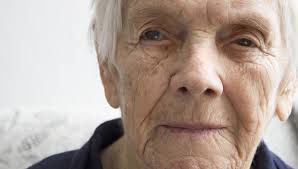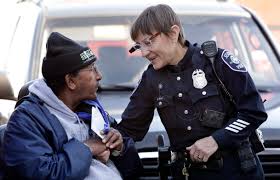07 Jun Elder Abuse Awareness – Who is a Mandated Reporter?
It’s Elder Abuse Awareness Month – Who is a Mandated Reporter?
June is Elder Abuse Awareness Month! With a Little Help will post a series of articles written by (or with a lot of help from) our friend and colleague, geriatric health specialist Karin Taifour, MA, LMHC, GMHS.

WHO IS A MANDATED REPORTER for ELDER ABUSE?
(Who is required to report elder abuse?)
Caregivers, social workers, and anyone working with the elderly population (see complete list below) . . . did you know by law you are defined as a Mandated Reporter? This means that if you even suspect abuse of a “vulnerable adult” (defined below), that you are required by law to report the crime to either DSHS or law enforcement.
While we may not be able to stop elder abuse from occurring, the law dictates that we are responsible for protecting our elder population from further harm if we are a witness to it, or are aware of it, or if we even suspect it might be happening. We do not have to have evidence or definitive proof of any wrongdoing – but if there are any concerns, we have to report it.
Who is a mandated reporter?
- An employee of DSHS;
- Law enforcement officer;
- Social worker;
- Professional school personnel;
- Individual care provider;
- An employee or operator of an adult living facility;
- An employee of social service, welfare, mental health, adult day health, adult day care, home health, home care, or hospice agency;
- County coroner or medical examiner;
- Christian Science practitioner;
- Any licensed health care provider;
- Anyone engaged in a professional capacity during the regular course of employment in encouraging or promoting the health, welfare, support, or education of vulnerable adults, or providing social services to vulnerable adults, whether in an individual capacity or as an employee or agent of any public or private organization or institution.

Who is a vulnerable adult?
- 60 years of age or older who has the functional, mental, or physical inability to care for himself or herself;
- Found incapacitated by a court or has a guardian;
- Has a developmental disability;
- Admitted to any care facility (adult family home, skilled nursing, assisted living, dementia care, residential care/treatment);
- Receiving services from home health, hospice, or home care agencies;
- Receiving services from an individual provider or personal aide
To report to DSHS / APS, call 1-866-END-HARM, or 1-866-363-4276.
Any criminal activity or assault must be reported to law enforcement:
* Call 911 if emergency situation, or
* Call local police agency’s non-emergency line or local precinct to make a police report (where the crime occurred).

If you are unsure…
* If you are unsure who to call or how to report, call the DSHS Hotline at 800-562-6078
* If you are unsure whether you need to report, CALL!
* You will never be held liable for making a report you didn’t need to make — but you run the risk of a misdemeanor charge and losing your professional license if you don’t report information that you should!
* For more information online, see https://www.dshs.wa.gov/report-abuse-and-neglect
Article researched by Aging Care Consultation Services – Karin Taifour, MA LMHC GMHS
Karin Taifour is a licensed mental health counselor and geriatric mental health specialist, and has worked in mental health with older adults for over 12 years. You can contact Karin at: 206-999-5934, and by email at karin@agingcareconsult.com. See her website here: Aging Care Consultation.
Next week – What exactly *is* elder abuse?

